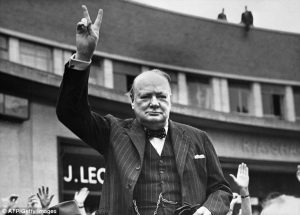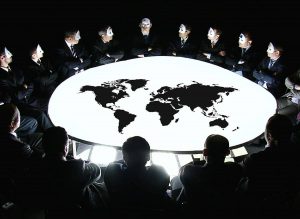Theory of Elite
“Later on the modern democratic theory, which had its source in Rousseau, took its stand upon the concept that the majority of the citizens in any state can participate, and in fact ought to participate, in its political life, and the doctrine of popular sovereignity still holds sway over many minds in spite of the fact that modern scholarship is making it increasingly clear that democratic, monarchial and aristocratic principles function side by side in every political organism.”8 The reason for this is that it is very hard to imagine that there is any society in which majorities are not ruled by the minorities. This is a natural fact, for the dominion of an organized minority, obeying a single impulse, over the unorganized majority is inevitable. Nevertheless, it is necessary to point out that in modern society a single individual would not be able to command a group without finding within the group a minority to support him. The power of any minority is irresistible as against each single individual in the majority who stands alone before the totality of the organized minority. At the same time, the minority is organized for the very reason that it is a minority. A hundred men acting uniformly in concert, with a common understanding, will triumph over a thousand men who are not in accord and can therefore be dealt with one by one.
It is, however, important to note that as a result of a growing number of large corporations, the establishment of trade unions and the development of political parties in modern society, power could to some degree be an attribution of institutions i.e. in the case of the political and the non-political elite, “the power elite are not solitary rulers. Advisers and consultants, spokesmen and opinion-makers are the captains of their higher thought and decision. Immediately below them are the professional politicians of the middle levels of power in the Congress (in the United States case, and partially in the Parliament in the case of the United Kingdom), and in the pressure groups, as well as among the new and old upper classes of town and city region.”9 Beside Millsꞌ studies of the modern elite, Mosca and Pareto have acknowledged that political power can also be influenced by people outside the governing elite, such as military, religious, and commercial elites. Pareto himself went even further by saying that “the upper stratum of society, the elite, nominally contains certain groups of people, not always very sharply defined, that are called aristocracies, and 6th governing eliteꞌ or ꞌpolitical eliteꞌ is itself composed of distinct social groups.”10
Therefore, H.D.Laswell, in his studies of political elite, gave an up-to-date definition to the concept. He said that “the political elite comprises the power holders of a body politic. The power holders included the leadership and the social formations from which leaders typically come, and to which accountability is maintained, during a given period.”11



